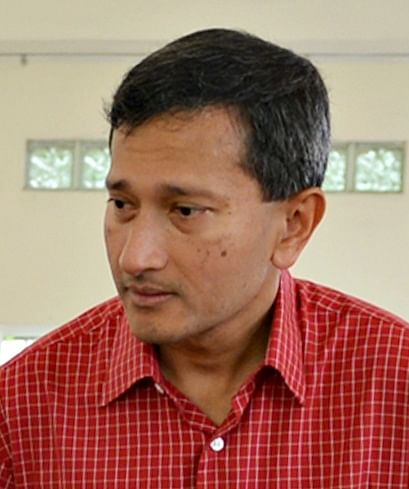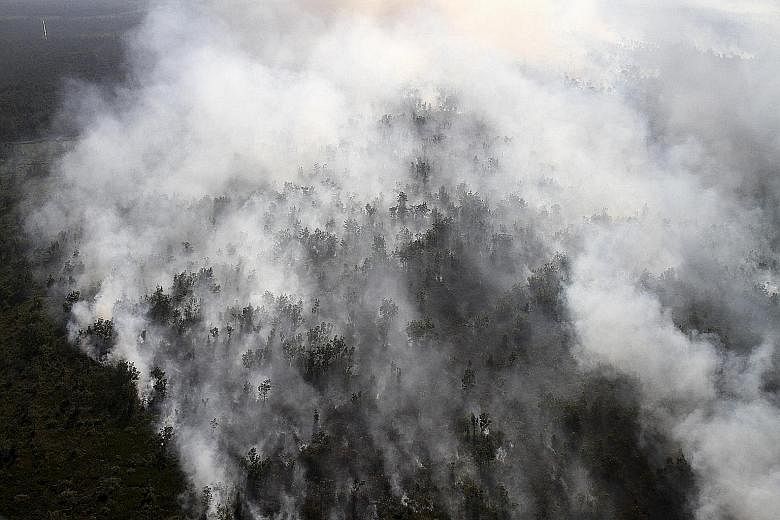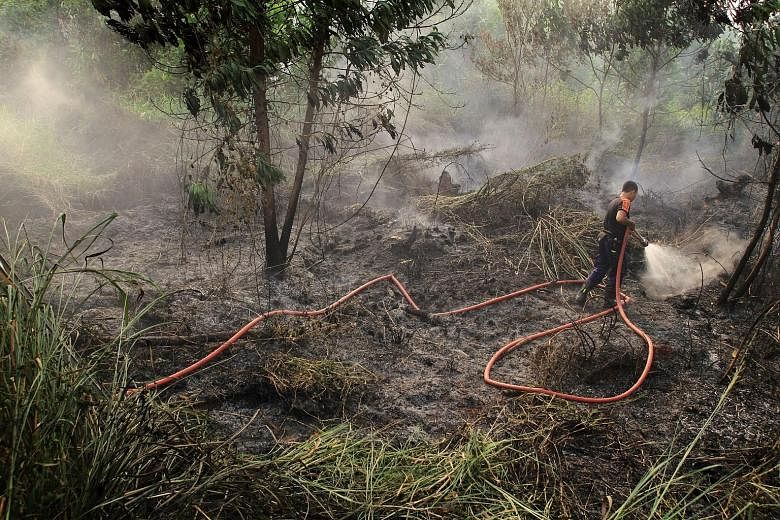Environment ministers from five Asean nations agreed yesterday to sharing information on a government-to-government basis that would help identify plantation companies on whose land fires start and cause haze.
The agreement, however, fell far short of the longstanding request by Singapore that Indonesia publicly share maps on agricultural concessions owned by oil palm, timber and other commodity companies, which are often blamed for starting the fires, particularly in neighbouring Sumatra.
"We decided to share hot spot information first - to make such data reach all parties as quickly as possible," said Indonesian Environment Minister Siti Nurbaya Bakar at a joint press conference after the meeting in Jakarta.
Representatives from Indonesia, Singapore, Malaysia, Brunei and Thailand attended the meeting.
Asean previously agreed to create a regional haze-monitoring system, with a computer system developed by Singapore that uses satellite images and hot-spot data to pinpoint fires that lead to haze.

Development of the system has progressed slowly as it awaits the concession maps from Indonesia and Malaysia to identify which companies are responsible for the land plots where fires occur.
Plantation companies have often been blamed for some of the fires that burn on their concessions although, in some cases, the fires are started outside their lands or by farmers who are encroaching or living on their concessions. Many large plantation companies also have fire crews to protect their oil palm trees, timber or other assets.
One problem is that these companies generally do not share concession boundary data and the Indonesian government has struggled to create accurate concession maps.
Another issue is that Indonesian laws ban the government from sharing concession maps, Ms Siti said.
The information on hot-spot locations, though, would reveal the truth and help with the investigation and prosecution of errant companies, said Singapore's Minister for the Environment and Water Resources, Dr Vivian Balakrishnan.
"It would allow us to do 'ground truthing', meaning, if we see a hot spot on a satellite that is verified on the ground, we could, hopefully, exchange information on which companies are responsible for that piece of ground on which the fire has started," Dr Balakrishnan said at the joint press conference.
Singapore passed legislation in August last year that would allow criminal and civil prosecution against Singaporean as well as foreign companies involved in illegal burning outside Singapore. But regulators would still need evidence and cooperation from the authorities on the ground.
Dr Balakrishnan also said he was convinced Indonesian President Joko Widodo was serious about overcoming the haze problem. He noted that the number of hot spots this year has been much lower. But he lamented the slow progress of the Asean haze talks.
"Despite multiple meetings... the progress has been very slow," he told reporters in Jakarta.
"I would say this is a problem that has gone on for too long. We need to solve it now. We are not moving as quickly as I would have hoped but nevertheless, there is some progress and, more importantly, there are signs of progress on the ground, certainly in Sumatra, and particularly in Riau."


